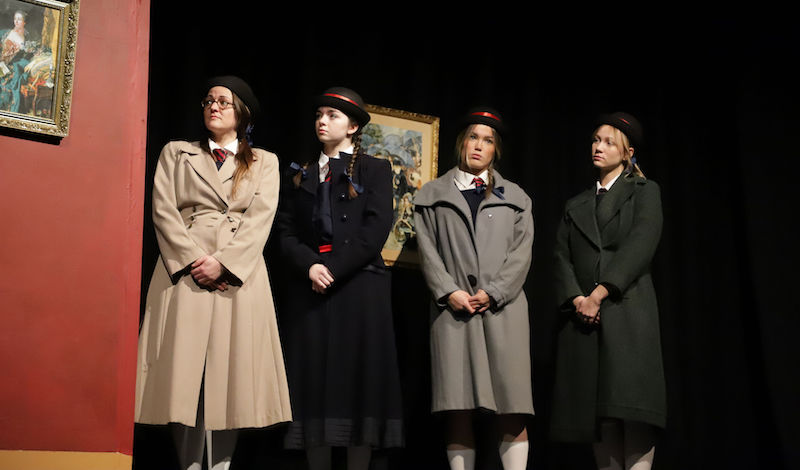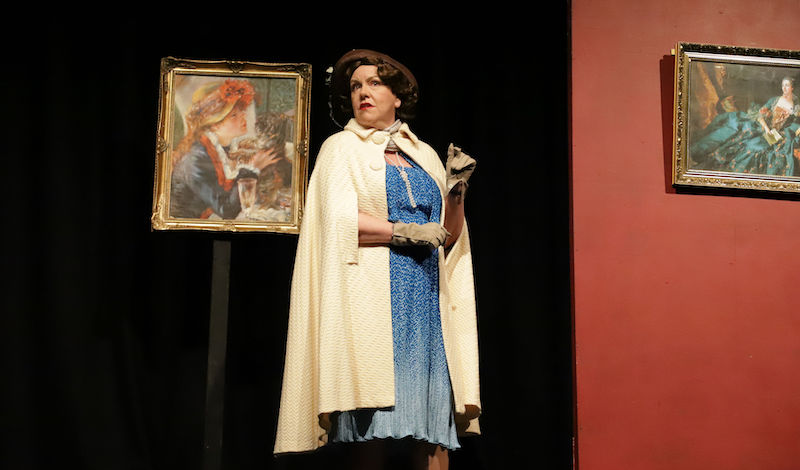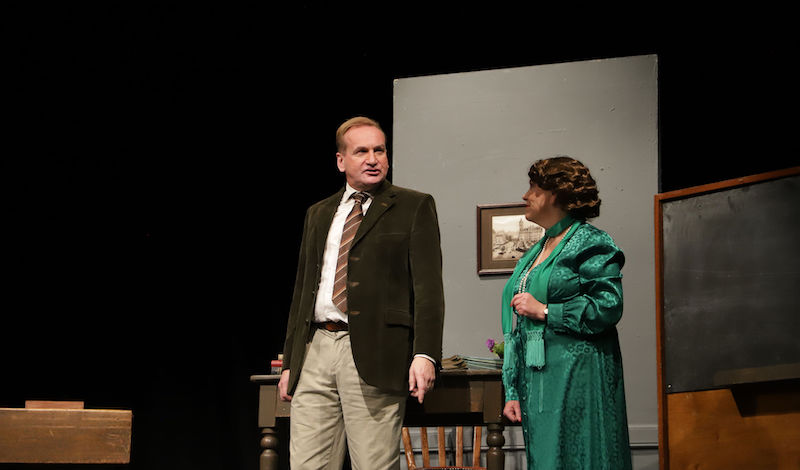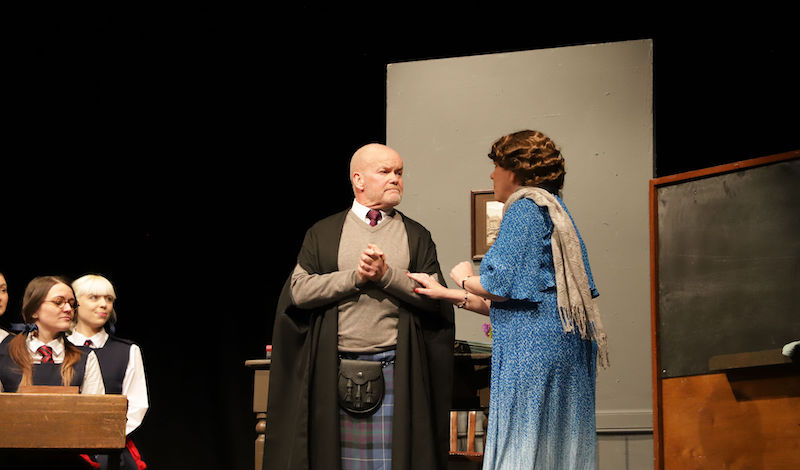The Prime of Miss Jean Brodie
★★★★☆ Powerful
Church Hill Theatre: Wed 29 Nov – Sat 2 Dec 2023
Review by Hugh Simpson
The Prime of Miss Jean Brodie, from Leitheatre at the Church Hill, is a complex piece of pitch-black satire discharged with skill.
Jay Presson Allen’s 1966 play is a stage version of Muriel Spark’s 1961 novel about a charismatic Edinburgh schoolteacher and the influence she wields over the girls she has chosen to be her ‘set’.
It remains Spark’s best-known work, and the title character has escaped the book to become a kind of local icon. Unfathomably, it has been thought appropriate to have direction boards in the Meadows and the walls of pizza restaurants painted with some of her sayings, and you would be forgiven for thinking she is some kind of pious schoolmarm in a cosy period drama.
Of course, she is far more frightening; she is explicitly said to be a descendant of Deacon Brodie, probable inspiration for that other local archetype Henry Jekyll.
She also, in her Calvinist certainty of predestination, resembles something from that other Scottish masterpiece The Confessions of a Justified Sinner. The fact that Brodie’s motivations are not so much diabolic as the strivings for attention of a self-obsessed poser does not make her manipulations of her pupils and adult admirers, her empty hero-worship, or her espousal of fascism any less terrifying.
as pertinent as ever
She is not the only villain in a story that is full of frustrated, self-justifying people doing frightful things. The examinations of the line between education and indoctrination, and the way truth can be bent to suit personal agendas, are as pertinent as ever.
Allen’s adaptation (possibly with one eye on the screenplay it shortly became) flattens out and makes linear the short novel’s elliptical structure. Spark’s use of flash-forward is replaced by a rather clunky framing device, but the play is an elegant piece of narrative theatre in its own right.

Miss Brodie’s Set: Sammi Watson, Chloe Law, Ailsa MacLean and Charlotte Dickson. Pic Eric W Whitelaw
Director Phil Wilson keeps things moving along, with notably good use made of the whole acting space, and of a modular set deign by Derek Blackwood that makes scene changes comparatively painless.
Susan Duffy’s Miss Brodie anchors the production very well. She embodies the character’s delusions while also having the necessary lightness of touch at times, dominating the stage as the character has to do.
Sterling support is provided by the pupils in the Brodie set. Sammi Watson’s Sandy is particularly fine, with the climactic scene featuring her and Miss Brodie fairly crackling with spite and electricity and raising an already impressive production to new heights.
believable and compelling
The other members of Brodie’s elite – Ailsa MacLean (Jenny), Chloe Law (Monica) and Charlotte Dickson (Mary MacGregor) are also thoroughly believable and compelling.
The other two sides of Miss Brodie’s unorthodox love triangle are also portrayed with energy. Pat Hymers is suitably sleazy as art teacher Teddy Lloyd, while Tim Foley gives singing teacher Gordon Lowther a convincingly cringing quality.
There is a comic vitality to Ruth McLaren’s headteacher Miss Mackay, while the cameo roles of Ruari Johnson and Lynne Morris help to suggest that the school is a whole community – something also aided by clever utilisation of a group (Lydia Bell, Roisin Hughes, Cara King, Beth McLean and Freya O’Horo) as Girl Guides, extra pupils or the next generation of the ‘crème de la crème’.
The framing scenes are never going to be easy to navigate. You half-expect a giant signpost to leap out, complete with comedy noise, when the interviewer asks at the beginning ‘was there someone who inspired you – a teacher, perhaps?’ Helen E. Nix and Scott Alexander do invest these moments with sufficient gravitas, however.
The momentum does flag at times, and the balance between seriousness and comedy is not always struck convincingly in a tale that is quite definitely not a light comedy. Instead, the machinations of those onstage should end up giving you a decidedly nasty taste in your mouth. Which is largely true here, in a production that satisfies Spark’s satirical intentions.
Running time: 2 hours and 25 minutes (including one interval)
Church Hill Theatre, 33 Morningside Road, EH10 4DR.
Wed 29 Nov – Sat 2 Dec 2023.
Wed – Fri: 7.30pm; Sat mat: 2.30pm.
Tickets and details: Book here.
ENDS





















